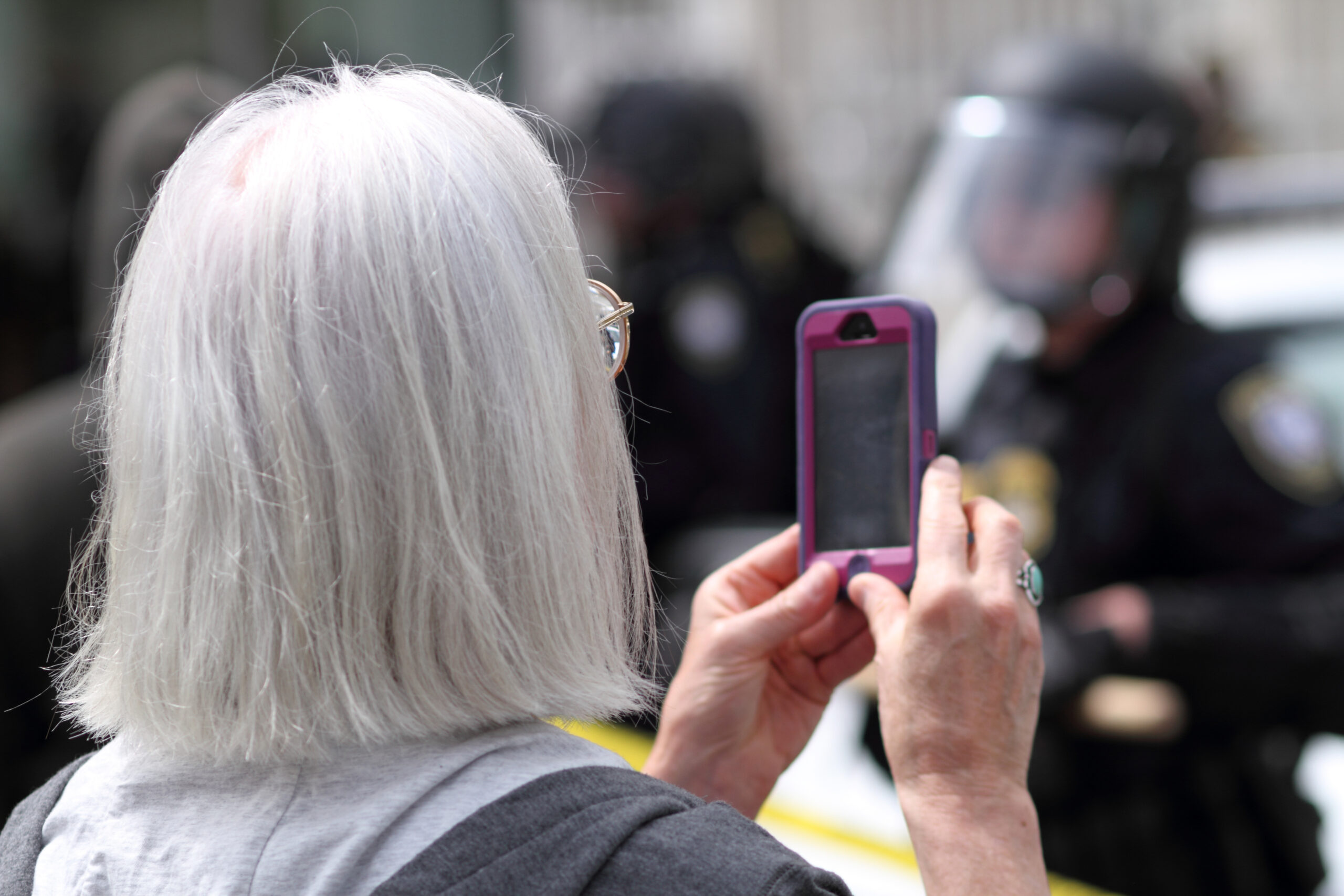Generally, citizens have the right to record an on-duty police officer so long as the recording does not interfere with their work. However, some police officers in the United States react to being filmed in a way that might make people nervous about video recording a police officer. The constitution generally protects people’s right to record a police officer’s interaction with them or another person when in a public space.

Things To Know About Recording A Police Officer
- Anything in plain view that is on public property can be photographed. So, for example, if someone is on a public street sitting at a table, they can be recorded, and the table can be captured, including anything sitting on the table.
- Anything in plain view on public property can be videotaped so long as the subject of the video does not have a reasonable expectation of privacy. Police officers do not have a reasonable expectation of privacy while working.
- Police officers cannot require you to show them your photos or video without obtaining a warrant for those photos and videos.
- Police officers cannot legally tamper with or delete any photos or videos that you have obtained.
Laws Concerning Recording Police Officers
In Michigan, there are two circumstances where police officers cannot be recorded. First, under Michigan law, it is illegal to wiretap someone if it violates their expectation of privacy. This means using listening devices or wiretapping someone’s cell phone to record a conversation secretly can result in a felony. The law generally applies to law enforcement and not individuals because most people don’t have the capability to wiretap someone’s phone. However, police officers do not have an expectation of privacy when conducting their job in public. Second, if recording or photographing a police officer interferes with their ability to do their job, they can request that the interference stops. If someone continues to record and interfere with the police officer’s duty, they may be arrested and charged with obstruction of justice.
Exceptions To The Right To Record Police Officers
If you are not on public property or your own property, you cannot legally record or photograph the police because you are trespassing to do so; however, this does not give the police the right to tamper with or delete the photos and videos that you recorded. Instead, if they tell you to leave the private property, you must do so or potentially be subject to arrest for trespassing.
Frequently Asked Questions About Recording A Police Officer
Is It My First Amendment Right To Record A Police Officer?
Yes, you do have a Constitutional First Amendment right to record or photograph a police officer while they are performing their duties in a public space.
Do I Have To Ask Or Inform The Police That I Am Recording Them?
No, you do not need to tell the police you are recording them in public. However, informing them may be the best option. Although you have the right to record and don’t have to make it known, you might catch the officer off-guard, which may cause them to react negatively.
When Do I Have To Stop Recording?
If the police ask you to stop recording, it may be a good option to do so, but if you are in a public place and not breaking any laws, you legally do not have to stop. If a police officer’s ability to do their job is hindered by someone recording, they are legally allowed to ask them to stop recording.
If you are not interfering with their ability to do their job or breaking any laws, the police cannot force you to stop recording. It is never a good thing to anger a police officer, so even if you have a legal right to record, you may choose to walk away.
What Happens If I Break A Law While Filming?
If a law is being broken during recording, the police officer can require you to stop recording, but they can never tamper with any of the recordings or pictures. In many situations, an officer will just tell someone to stop recording and not why, so before you try to record the police, it is crucial that you understand the law. Failing to stop recording while breaking the law after an officer tells you to stop may result in them arresting you for whatever law you are violating. For example, if you are trespassing on someone’s property to record an officer and they tell you to stop and leave, failing to do so may result in a trespassing charge.
Hiring A Criminal Defense Attorney In Michigan
If you or someone you know has been charged with a crime because they were legally recording or photographing a police officer, or if a police officer has deleted or tampered with your recording or photographs, it is important to contact experienced criminal defense attorneys. The attorneys at George Law will review the facts of your case and provide a vigorous defense against charges stemming from police who have denied someone their legal right to record police officers. To schedule a free consultation with one of our experienced attorneys, contact us at (248) 247-7459 or online.

 Menu
Menu